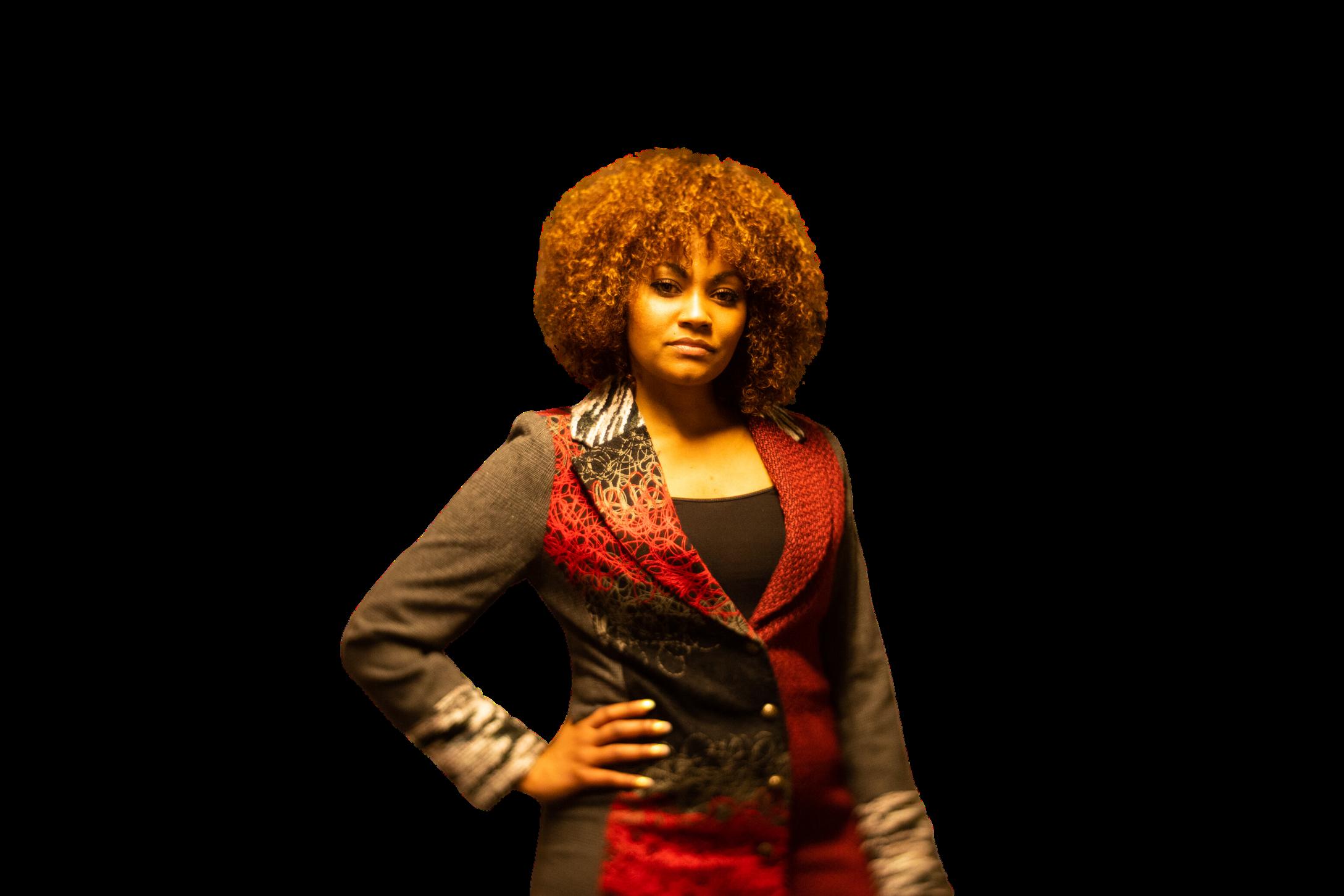










































Throughout the Spring 2024 semester, in tribute to the February Sisters and Women's History Month, the Emily Taylor Center for Women & Gender Equity; Department of Women, Gender & Sexuality Studies; and Kenneth Spencer Research Library partnered to release a collaborative zine project — titled "Remembering KU's February Sisters" — featuring work by members of the KU and Lawrence community.





On Wednesday, February 21, 2024, Monty Coash-Johnson, a KU undergraduate and the Emily Taylor Center’s Zine Fellow, hosted a special session of Zines & Za dedicated to the February Sisters. During this zine night, Megan Williams, PhD, a KU alum and the Emily Taylor Center’s Assistant Director, offered participants a brief history of the February Sisters before Monty invited attendees to work on a page for inclusion in this collaborative zine project.







On Monday, March 18, 2024, “Remembering KU's February Sisters" was released at a reception in the North Gallery of the Kenneth Spencer Research Library. This celebration featured guests of honor February Sisters Christine Leonard Smith and Jo Andersen, zine contributors reflecting on their submissions, and a University Archives display of original documents telling the story of the February Sisters.








The environment for KU women students, faculty and staff before the February Sisters courageous actions was often oppressive. The parietal rules restricting women students’ lives had barely ended. The director of KU’s student health services announced that contraceptives would not be given to unmarried KU students “under any circumstances.”
Pay disparities for women faculty and staff were glaring.
When Robin Morgan spoke at the Kansas Union Ballroom on February 2, 1972, few knew her talk would galvanize a group of KU women, who came to be known as the February Sisters, to occupy a campus building. Even more remarkable, the demands of the February Sisters and resulting KU policy changes transformed the rights, education, services, and leadership for women, as well as for the university as a whole. And just as in the 1965 Strong Hall civil rights sit-in, the demands made were well-reasoned arguments grounded in the facts of injustice and the university’s failure to take action despite federal mandates.
Robin Morgan’s talk did not call for a building takeover, but it did bring together many women with similar concerns--not only over reproductive rights but also over affirmative action related to hiring practices, demands for a women’s studies department, and discrepancies in scholarships for and recruitment of women students. At the end of her talk, women shared their anger about the lack of childcare and women’s health services and pay disparities. Women faculty decried the lack of an affirmative action program and characterized the university’s attitude as one of “delay” and “indifference.” Later that day, as many as 100 women staff, faculty, faculty wives, and graduate and undergraduate students met to discuss a plan of action.
On the evening of February 4, thirty women and four of their children
took over the East Asian Studies building at 1332 Louisiana Street. The women arrived with food and sleeping bags and chained the doors shut. The building was chosen both because of its potential suitability as a day care center and because one of the women involved had a key. They called themselves the February Sisters, and flyers with demands were posted around campus. They demanded an affirmative action program; a day care center; a woman to fill the vacant vice chancellor of academic affairs position; the end of unfair employment practices; a women’s studies department; and a women’s health program that would include ready access to birth control. The planning and organization of the takeover was remarkable and indicative of feminist ingenuity: outside childcare was arranged; food was plentiful; and outside and inside teams communicated about strategy and negotiated demands with the administration.
Chancellor Chalmers, notified of the takeover at his bridge party, initially ignored the news. He later called in Dean Emily Taylor for assistance. She added five women, including Marilyn Stokstad, professor and chair of art history, and Elizabeth Banks, associate professor of classics, to her negotiation team and sent Professor Banks to the East Asian Studies building. Meetings between five of the February Sisters and the chancellor, with a group that included the Senate Executive Committee, the dean of women, and the university attorney, lasted throughout the night, as did consultations with the rest of the occupiers. Finally, the Senate Executive Committee issued a resolution supporting a day care center and women’s health program. The women left the East Asian Studies building before 9:00 in the morning and mingled with 60 women who had rallied at the entrance, thus preventing identification of the occupiers and possible expulsion
from the university or loss of jobs. A press release issued that day described the February Sisters’ actions as “non-violent, nondestructive and carried out with the specific intention of showing our strength and solidarity, and of drawing public attention to our pressing needs.”
KU did respond to most of the February Sisters’ demands. Watkins started to prescribe birth control pills for unmarried women students and to provide gynecological services, although moralistic attitudes from health center administrators and providers continued. Hilltop Child Care (now Development) Center opened in August 1972. The Women’s Studies Program and the first special major in Women’s Studies started in the fall of 1972. Chalmers appointed an Affirmative Action Board with a woman as chair and a February Sister as a member, but the final plan was not issued until over a year later. Marilyn Stokstad became the first female associate dean in the College. Robin Morgan was invited back to speak at the 20-year celebration of the February Sisters’ actions. Angela Davis spoke at the 40th anniversary in 2012, and the 50th anniversary was celebrated with an events’ series including former Kansas Governor Kathleen Sebelius.
The support for the February Sisters’ actions was widespread among KU women. A woman faculty member highlighted “the courage of the women who…achieved something others were not able to achieve by working within the system.” And in their own 1973 progress report, the February Sisters affirmed: “We have made the unacceptability of our situation…known. We have identified problems and suggested directions toward solutions….The laws are, in general, on our side and anyone of us or two or five or fifty can, if we are willing to make the effort, force the university community to treat us as human beings.”
 Monty Coash-Johnson
Monty Coash-Johnson




This action has been taken because the needs of women in this
community have long been neglected. We are demanding a daycare
women have been working on.
center for women on campus----students, faculty wives, and workers.
women have been working very hard to achieve the demands we are
We recognize the fact that many other groups of women and individual
making. We appreciate the tremendous efforts of these women, and we
to work.
need for daycare by taking your children everywhere you go--to class,
hope that our action will illustrate the need for the programs these
Women and men, if you wish to support the action you may illustrate the
street from the Union)...
For more information and a complete list of demands stop in or call the

Women’s Center located at the Student Activities Center (across the

Kansan coverage of the February Sisters has been constantly biased, culminating Wednesday (Feb. 16) in Tom Slaughter’s editorial attacking the February Sisters as “gangsters and hoodlums,” “criminals” and accusing us of “philosophical bankruptcy,” and being hypocritically committed to human rights.
Contrary to popular misconceptions, the action of the February Sisters was warranted by the continual frustration by the administration of efforts to achieve equity for women on this campus.
We have finally begun to see some action; it is our intent to continue to work for women’s liberation until we win.
KU student Sarah Scott and her sister Scottie were among the February Sisters who planned to force KU to meet their demands by occupying a campus building. (Sketch of Sarah Scott by Kirsten Söderlind)HISTORIAN KELLY SARTORIUS APTLY DESCRIBED THE FEBRUARY SISTERS AS:














 Megan Williams
Megan Williams
It was just a few days before her 3rd birthday, My heart throb, my precious daughter. I wanted so very much for her:
To grow up strong, aware of her strength,
Never apologizing for outdoing the boys or anyone else, As I had been led to believe.
So on this night, two days before her third birthday, I took her to the Kansas Union ballroom
To hear Robin Morgan
And, even with her almost three year old self,
To become inspired with feminine wisdom.
The Union crew had figured that not very many people would show up.
After all, who in their right mind would waste an evening listening
To a raving, man hating, so-called liberated woman?
The ballroom had partitions so you could make the room small Or move the partitions to make it larger.
When we got there, my daughter and I, the room was small. But there weren’t enough seats, so we stood at the back.
The union crew started moving partitions. And bringing in more chairs.
We found a seat in the back in case we had to leave.
After all, my child was almost three years old.
Soon, the crew had to move partitions again.
And again.
According to my memory,
Instead of the expected 25, 300 eventually showed up.
At least I/4th were men.
We stayed through the entire talk.
Chelle was entranced.
Robin challenged us:
What changes would you like to see at KU?
We named many changes.
Then how are you going to make them happen, she asked.
Many women stayed afterwards; Chelle and I went home.
It was past her bedtime.
Around 2AM. I got a phone call.
We’re going to take over the East Asian Studies building
After dark on February 4.
There are about 30 of us with many children.
We expect to be arrested.
Would you be the designated baby sitter?
Plan on keeping 20 children for 10 days.
Piece of cake, I said.
That’s how I became the designated babysitter
For the February Sisters.
The rest is history.
Jo Andersen
“CJ was best known as an activist for social justice, opposition to war, racial equality and women’s rights. Her proudest achievement was as a member of the February Sisters. They were the first women to occupy a university building in behalf of their own rights, and their action gained meaningful improvements for women at KU.”
— Lawrence Journal-World







“The February Sisters have always stayed in my memory and in my heart.”



— Robin Morgan















Scan to view panels!


PROUDLYSPONSOREDBY

Associate Professor of African American Studies
Wayne State University
JAYHAWKWELCOMECENTER
1266 Oread Avenue
REFRESHMENTSPROVIDED
Department of Women, Gender & Sexuality Studies
Emily Taylor Center for Women & Gender Equity
Office for Diversity, Equity, Inclusion & Belonging
Department of African & African American Studies
Department of American Studies
Department of History
History of Black Writing
Office of Multicultural Affairs
The February Sisters, a group of 30 women and 4 children, occupied the East Asian Studies building at the University of Kansas for thirteen hours on February 4, 1972. This peaceful protest, accompanied by six nonnegotiable demands, challenged “the continuing sex-based inequities perpetrated by this university” and pressured the administration to establish new “resources to meet the pressing needs of women.” As a result of their demands, the February Sisters brought about important institutional change at KU.
Women’s History Month, which started as Women’s History Week, grew out of a 1979 institute on the new field of women’s history organized by Dr. Gerda Lerner. “Women's history,” wrote Lerner, “is indispensable and essential to the emancipation of women.” Lerner felt strongly that “we can draw pride, comfort, courage, and long-range vision” from the exploration of women’s history. She argued that the study of women’s history provides a powerful “tool for organizing,” allowing us to learn from the ideas, strategies, tactics, successes, and mistakes of our predecessors. In this tradition, the Department of Women, Gender & Sexuality Studies and the Emily Taylor Center for Women & Gender Equity present the annual February Sisters Lecture in March to honor Women's History Month and celebrate KU's own women’s history makers.







